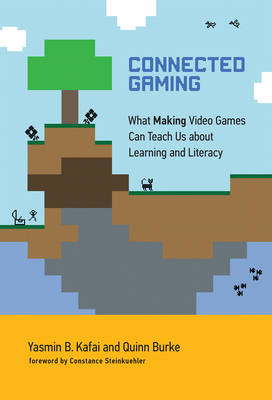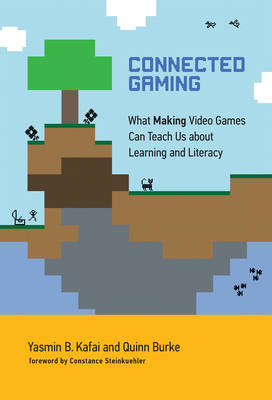
- Afhalen na 1 uur in een winkel met voorraad
- Gratis thuislevering in België vanaf € 30
- Ruim aanbod met 7 miljoen producten
- Afhalen na 1 uur in een winkel met voorraad
- Gratis thuislevering in België vanaf € 30
- Ruim aanbod met 7 miljoen producten
Connected Gaming
What Making Video Games Can Teach Us about Learning and Literacy
Yasmin B Kafai, Quinn BurkeOmschrijving
Over the last decade, video games designed to teach academic content have multiplied. Students can learn about Newtonian physics from a game or prep for entry into the army. An emphasis on the instructionist approach to gaming, however, has overshadowed the constructionist approach, in which students learn by designing their own games themselves. In this book, Yasmin Kafai and Quinn Burke discuss the educational benefits of constructionist gaming--coding, collaboration, and creativity--and the move from "computational thinking" toward "computational participation."
Kafai and Burke point to recent developments that support a shift to game making from game playing, including the game industry's acceptance, and even promotion, of "modding" and the growth of a DIY culture. Kafai and Burke show that student-designed games teach not only such technical skills as programming but also academic subjects. Making games also teaches collaboration, as students frequently work in teams to produce content and then share their games with in class or with others online. Yet Kafai and Burke don't advocate abandoning instructionist for constructionist approaches. Rather, they argue for a more comprehensive, inclusive idea of connected gaming in which both making and gaming play a part.
Specificaties
Betrokkenen
- Auteur(s):
- Uitgeverij:
Inhoud
- Aantal bladzijden:
- 224
- Taal:
- Engels
- Reeks:
Eigenschappen
- Productcode (EAN):
- 9780262035378
- Verschijningsdatum:
- 23/12/2016
- Uitvoering:
- Hardcover
- Formaat:
- Genaaid
- Afmetingen:
- 160 mm x 236 mm
- Gewicht:
- 437 g

Alleen bij Standaard Boekhandel
Beoordelingen
We publiceren alleen reviews die voldoen aan de voorwaarden voor reviews. Bekijk onze voorwaarden voor reviews.











